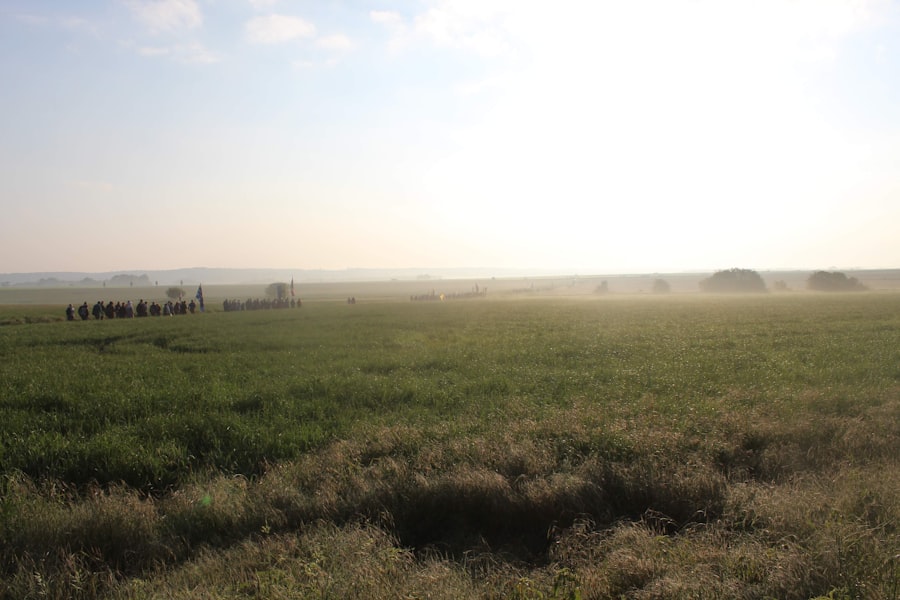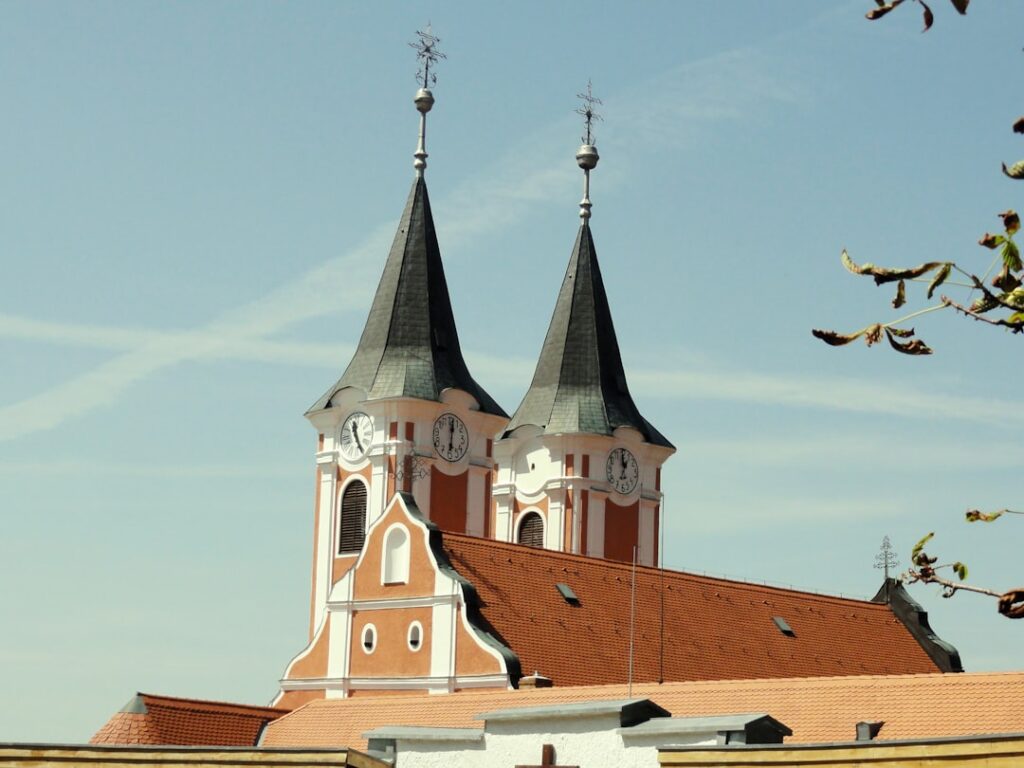“The Pilgrimage,” authored by the Brazilian writer Paulo Coelho, is a profound narrative that intertwines the physical journey of its protagonist with a deep exploration of spiritual awakening and self-discovery. Published in 1987, the book is not merely a travelogue; it serves as a philosophical treatise that invites readers to reflect on their own lives and the paths they choose. Coelho draws from his own experiences, having undertaken the Camino de Santiago, a historic pilgrimage route in Spain, which adds authenticity and depth to the narrative.
The story follows the protagonist, who embarks on a quest not only to reach a physical destination but also to uncover the mysteries of life and the essence of faith. The narrative structure of “The Pilgrimage” is rich with allegorical elements, making it a compelling read for those interested in spirituality and personal growth. Coelho’s writing style is characterized by its simplicity and clarity, allowing complex ideas to resonate with a broad audience.
The book is imbued with lessons about perseverance, the importance of following one’s dreams, and the transformative power of love and faith. As readers accompany the protagonist on his journey, they are invited to reflect on their own beliefs and the significance of their personal quests.
Key Takeaways
- The Pilgrimage explores a transformative journey blending adventure with spiritual growth.
- The protagonist’s path reflects deep philosophical and introspective themes.
- The Camino de Santiago serves as a powerful backdrop influencing the narrative’s spiritual lessons.
- Teachings from the Master guide the protagonist toward profound personal transformation.
- The book leaves a lasting impact, inspiring readers to pursue their own journeys of self-discovery.
The Journey of the Protagonist
The protagonist’s journey in “The Pilgrimage” is both literal and metaphorical. He sets out on the Camino de Santiago, a pilgrimage that has been traversed by countless individuals seeking spiritual enlightenment for centuries. This journey is not just about reaching Santiago de Compostela; it symbolizes the quest for self-knowledge and understanding one’s place in the universe.
As he walks along the ancient paths, he encounters various challenges that test his resolve and commitment to his spiritual goals. Each step taken on this pilgrimage serves as a reminder of the struggles inherent in any meaningful pursuit. Throughout his journey, the protagonist meets a diverse cast of characters, each representing different facets of human experience and wisdom.
These encounters are pivotal, as they provide him with insights that challenge his preconceived notions about life and spirituality. For instance, he learns from fellow pilgrims who share their stories of hardship and triumph, illustrating that every individual carries their own burdens and aspirations. The physical act of walking becomes a metaphor for the inner journey he must undertake to confront his fears, doubts, and desires.
This duality of journeying—both outwardly on the Camino and inwardly within himself—creates a rich tapestry of experiences that resonate deeply with readers.
The Spiritual and Philosophical Themes

At its core, “The Pilgrimage” delves into profound spiritual and philosophical themes that encourage introspection and contemplation. One of the central themes is the idea of faith—not just in a religious sense but as a broader concept that encompasses trust in oneself and the universe. The protagonist grapples with questions about destiny, purpose, and the nature of belief as he navigates through various trials along his path.
Coelho emphasizes that faith is not merely an abstract concept but a lived experience that requires action and commitment. Another significant theme is the importance of following one’s personal legend or calling. Coelho posits that each individual has a unique purpose in life, often referred to as their “Personal Legend.” The protagonist’s journey serves as an allegory for pursuing this calling despite obstacles and fears.
The narrative encourages readers to reflect on their own dreams and aspirations, urging them to take risks in pursuit of what truly matters to them. This theme resonates with many who feel lost or disconnected from their true selves, offering a pathway toward rediscovery and fulfillment.
The Influence of the Camino de Santiago
The Camino de Santiago is not just a backdrop for the protagonist’s journey; it plays a crucial role in shaping the narrative’s themes and messages. This ancient pilgrimage route has been traveled by millions over centuries, each seeking spiritual renewal or personal transformation. Coelho’s depiction of the Camino highlights its historical significance as well as its contemporary relevance.
The physical landscape—the rolling hills, quaint villages, and sacred sites—serves as a metaphor for life’s journey, filled with both beauty and challenges. Moreover, the Camino is steeped in rich traditions and rituals that enhance the spiritual experience of pilgrims. Coelho incorporates these elements into his narrative, illustrating how communal experiences can foster connection and understanding among individuals from diverse backgrounds.
The shared goal of reaching Santiago de Compostela creates bonds among pilgrims, emphasizing the importance of community in personal growth. This aspect of the pilgrimage underscores the idea that while each person’s journey is unique, there is a collective human experience that unites us all in our search for meaning.
The Teachings of the Master
A pivotal figure in “The Pilgrimage” is the Master, who serves as a mentor to the protagonist throughout his journey. The Master embodies wisdom and experience, guiding the protagonist through various lessons that challenge his understanding of spirituality and life itself. Through their interactions, Coelho imparts essential teachings that resonate with readers seeking guidance on their own paths.
The Master emphasizes concepts such as humility, patience, and the importance of listening to one’s intuition. One of the most significant teachings revolves around the idea that true knowledge comes from within rather than external sources. The Master encourages the protagonist to trust his instincts and embrace his unique journey rather than conforming to societal expectations or norms.
This message is particularly powerful in today’s world, where individuals often feel pressured to follow prescribed paths rather than exploring their own desires and aspirations. By highlighting this internal quest for knowledge, Coelho invites readers to embark on their own journeys of self-discovery.
The Transformation of the Protagonist

As the protagonist progresses along the Camino de Santiago, he undergoes a profound transformation that reflects both personal growth and spiritual awakening. Initially burdened by self-doubt and uncertainty, he gradually sheds these limitations as he confronts his fears and embraces vulnerability. Each challenge he faces—be it physical exhaustion or emotional turmoil—serves as an opportunity for growth, pushing him closer to understanding his true self.
This transformation is not instantaneous; it unfolds gradually throughout the narrative as he learns to embrace discomfort and uncertainty as integral parts of life. Coelho illustrates that transformation often requires letting go of old beliefs and patterns that no longer serve us. The protagonist’s journey becomes a testament to resilience and courage as he learns to navigate life’s complexities with newfound clarity and purpose.
By the end of his pilgrimage, he emerges not only as a changed individual but also as someone who has gained deeper insights into love, faith, and connection.
The Impact of The Pilgrimage on Readers
“The Pilgrimage” has left an indelible mark on readers around the world since its publication. Its universal themes of self-discovery, faith, and perseverance resonate deeply with individuals from diverse backgrounds and cultures. Many readers find themselves reflecting on their own life journeys as they engage with Coelho’s narrative, prompting them to consider their aspirations and challenges in new light.
The book serves as both an inspiration and a guide for those seeking meaning in their lives. Moreover, Coelho’s accessible writing style allows readers to connect with complex philosophical ideas without feeling overwhelmed. His use of allegory and metaphor invites readers to interpret the narrative in ways that are personally meaningful.
This open-ended approach fosters a sense of intimacy between the reader and the text, encouraging individuals to draw parallels between their experiences and those of the protagonist. As a result, “The Pilgrimage” has become more than just a story; it has evolved into a catalyst for personal reflection and transformation.
The Legacy of The Pilgrimage
The legacy of “The Pilgrimage” extends far beyond its pages; it has become a cultural phenomenon that continues to inspire countless individuals on their quests for meaning and fulfillment. Coelho’s exploration of spirituality, personal growth, and the human experience resonates across generations, making it a timeless work that speaks to universal truths about life’s journey. As readers embark on their own pilgrimages—whether literal or metaphorical—they carry with them the lessons learned from Coelho’s narrative.
In an increasingly complex world where individuals often grapple with feelings of disconnection or uncertainty, “The Pilgrimage” offers solace and guidance. It reminds us that every journey is unique yet interconnected through shared experiences of love, struggle, and discovery. As such, Coelho’s work continues to inspire new generations to seek their own paths while embracing the beauty of life’s uncertainties—a testament to the enduring power of storytelling in shaping our understanding of ourselves and our place in the world.
For those interested in exploring similar concepts, you might find the article on com/’>Hellread insightful, as it delves into the transformative power of travel and the importance of following one’s path in life.
FAQs
What is “The Pilgrimage” by Paulo Coelho about?
“The Pilgrimage” is a novel by Paulo Coelho that recounts the author’s journey along the Camino de Santiago, a famous pilgrimage route in Spain. The book blends adventure, spirituality, and self-discovery as Coelho shares lessons learned during his travels.
When was “The Pilgrimage” published?
“The Pilgrimage” was first published in 1987.
Is “The Pilgrimage” a fictional story or a memoir?
“The Pilgrimage” is a semi-autobiographical novel. It is based on Paulo Coelho’s real-life experience walking the Camino de Santiago but includes fictionalized elements to convey spiritual and philosophical insights.
What is the Camino de Santiago?
The Camino de Santiago, also known as the Way of St. James, is a network of pilgrimage routes leading to the shrine of the apostle Saint James the Great in the cathedral of Santiago de Compostela in Spain. It has been a significant spiritual journey for centuries.
What themes are explored in “The Pilgrimage”?
The book explores themes such as spiritual growth, self-discovery, overcoming fear, the importance of perseverance, and the search for meaning in life.
Is “The Pilgrimage” related to Paulo Coelho’s other works?
Yes, “The Pilgrimage” shares thematic elements with Coelho’s other works, especially “The Alchemist,” focusing on personal quests and spiritual enlightenment.
Who is the intended audience for “The Pilgrimage”?
The book appeals to readers interested in spirituality, travel, personal development, and those curious about the Camino de Santiago pilgrimage.
Has “The Pilgrimage” been translated into other languages?
Yes, “The Pilgrimage” has been translated into multiple languages and is available worldwide.
Does “The Pilgrimage” provide practical information about the Camino de Santiago?
While the book offers insights into the pilgrimage experience, it is primarily a spiritual and philosophical narrative rather than a practical travel guide.
What impact did “The Pilgrimage” have on Paulo Coelho’s career?
“The Pilgrimage” helped establish Paulo Coelho as a prominent author in the genre of spiritual literature and contributed to his international recognition.







